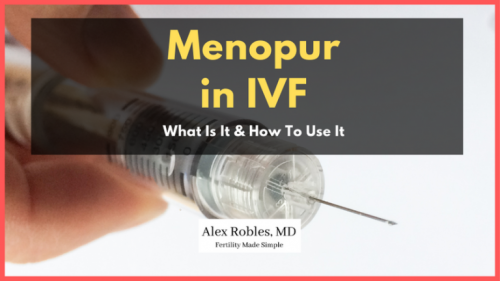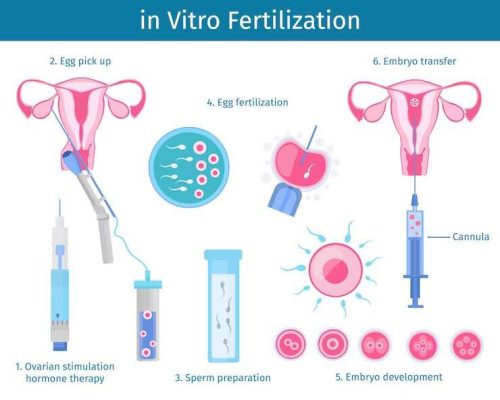What Happens to Your Body After Failed IVF
When you’ve gone through in vitro fertilization (IVF) and it doesn’t work out, it’s tough—emotionally, mentally, and physically. You might feel like your body has let you down, or you’re just exhausted from the rollercoaster of hope and disappointment. While the emotional side gets a lot of attention (and it should!), what’s happening to your body after a failed IVF cycle is just as real—and often less talked about. Your hormones are shifting, your energy might be zapped, and you could be wondering, “Is this normal?” or “What’s next?”
This article dives deep into the physical aftermath of a failed IVF cycle. We’ll explore how your body reacts, why it feels the way it does, and what you can do to recover. Plus, we’ll touch on some things you won’t find in most articles—like how your gut health might play a role or what the latest research says about bouncing back. Whether you’re gearing up for another try or taking a break, understanding what’s going on inside can help you feel more in control.
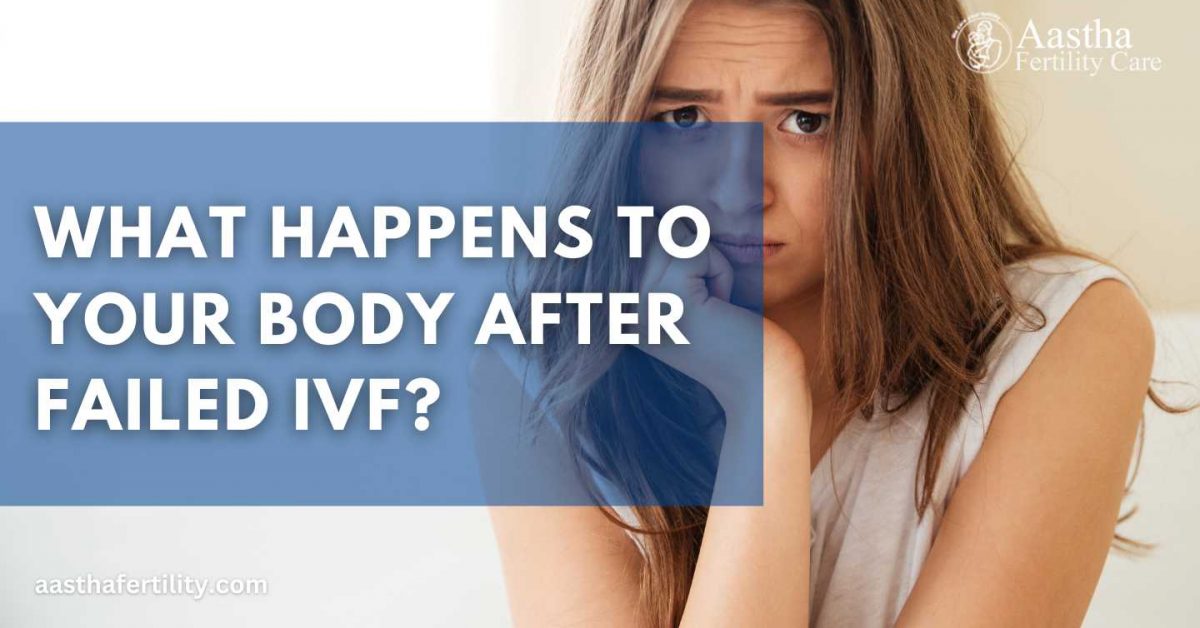
The Physical Fallout: What’s Happening Inside You
After a failed IVF cycle, your body doesn’t just “snap back” to normal. It’s been through a lot—medications, procedures, and stress—and it needs time to reset. Here’s a breakdown of what’s going on.
Hormonal Chaos: The Rollercoaster Doesn’t Stop
IVF involves pumping your body with hormones like follicle-stimulating hormone (FSH) and luteinizing hormone (LH) to kick your ovaries into overdrive. These meds help grow multiple eggs, but when the cycle fails—meaning no pregnancy happens—those hormones don’t just vanish. Your body has to figure out how to balance them again.
- What You Might Feel: Bloating, mood swings, tender breasts, or even headaches. It’s like PMS on steroids.
- Why It Happens: The high doses of hormones can throw off your natural estrogen and progesterone levels. After the cycle ends, your ovaries might still be enlarged from overstimulation, and it takes weeks for everything to calm down.
- Science Says: A 2023 study in Fertility and Sterility found that it can take up to 6 weeks for hormone levels to stabilize after a failed IVF cycle, depending on the protocol used.
Think of it like revving up a car engine and then slamming on the brakes—your body needs time to idle back to normal. For some, this hormonal shift feels mild; for others, it’s a wild ride.
The Ovaries: Overworked and Overstimulated
Your ovaries are the MVPs of IVF, producing way more eggs than they would in a natural cycle. But after a failed attempt, they don’t get a victory lap—they get a timeout.
- What You Might Notice: Cramping, pelvic discomfort, or a heavy feeling in your lower belly.
- Why It Happens: Medications can cause ovarian hyperstimulation syndrome (OHSS) in some cases, where the ovaries swell and leak fluid into your abdomen. Even without full-blown OHSS, they’re still recovering from being pushed to the max.
- A Real Risk: Mild OHSS affects up to 30% of IVF patients, according to the American Society for Reproductive Medicine (ASRM). Symptoms like bloating or nausea might linger for days or weeks.
It’s like asking your ovaries to run a marathon and then expecting them to sprint again right away—they need a breather.
Fatigue: Why You’re So Tired
If you feel wiped out after a failed cycle, you’re not alone. Your body’s been through a physical and emotional marathon, and exhaustion is a common side effect.
- What’s Behind It: Hormonal fluctuations, disrupted sleep from stress, and the energy your body spent on egg production all add up.
- A Hidden Factor: Some experts think the stress hormone cortisol spikes during IVF, and after a failure, it can leave you feeling drained as your adrenal glands try to recalibrate.
- Tip: Rest isn’t just “nice to have”—it’s essential. Aim for 7-9 hours of sleep a night to help your body recover.
Your energy tank is running on fumes, and that’s okay—it’s a sign your body is working hard to heal.
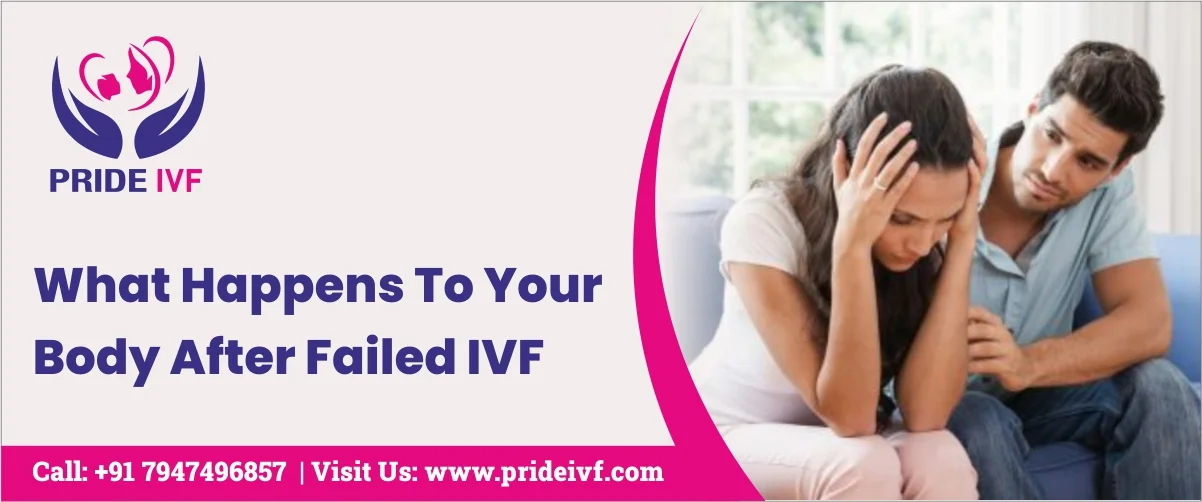
Emotional Stress and Your Body: The Mind-Body Connection
A failed IVF cycle isn’t just physical—it hits you emotionally, and that stress can show up in surprising ways. Your mind and body are more connected than you might think.
Cortisol and Chaos: Stress Takes a Toll
When IVF doesn’t work, disappointment can flood your system with cortisol, the stress hormone. This isn’t just “feeling sad”—it can mess with your body.
- Physical Signs: Tense muscles, headaches, or even a racing heart.
- Why It Matters: Chronic stress can delay your hormonal recovery, making it harder for your body to bounce back. A 2024 study from the Journal of Reproductive Psychology found that women with higher cortisol levels post-IVF reported more physical symptoms like fatigue and pain.
- What You Can Do: Try deep breathing—inhale for 4 seconds, hold for 4, exhale for 4. It’s simple but can lower cortisol fast.
Your body’s stress response is like an alarm that won’t shut off—it needs a reset button.
Appetite Changes: Why Food Feels Weird
Some people lose their appetite after a failed cycle, while others crave comfort food. Both are normal, and both tie back to stress and hormones.
- What’s Happening: Cortisol can suppress hunger or trigger cravings for sugar and carbs. Plus, bloating from IVF meds might make eating uncomfortable.
- A Fresh Angle: Emerging research suggests your gut microbiome—the bacteria in your digestive system—might shift during IVF due to stress and meds. This could explain why your stomach feels off.
- Quick Fix: Sip ginger tea to ease nausea or bloating. It’s gentle and soothing.
Your gut’s telling you it’s been through the wringer too—listen to it.
Interactive Check-In: How Are You Feeling?
Let’s pause for a quick self-check. Grab a pen or just think about these—be honest with yourself:
- ✔️ Do you feel more tired than usual?
- ✔️ Are you bloated or crampy?
- ✔️ Have your moods been all over the place?
If you checked any of these, don’t worry—it’s your body talking. Keep reading for ways to support it.
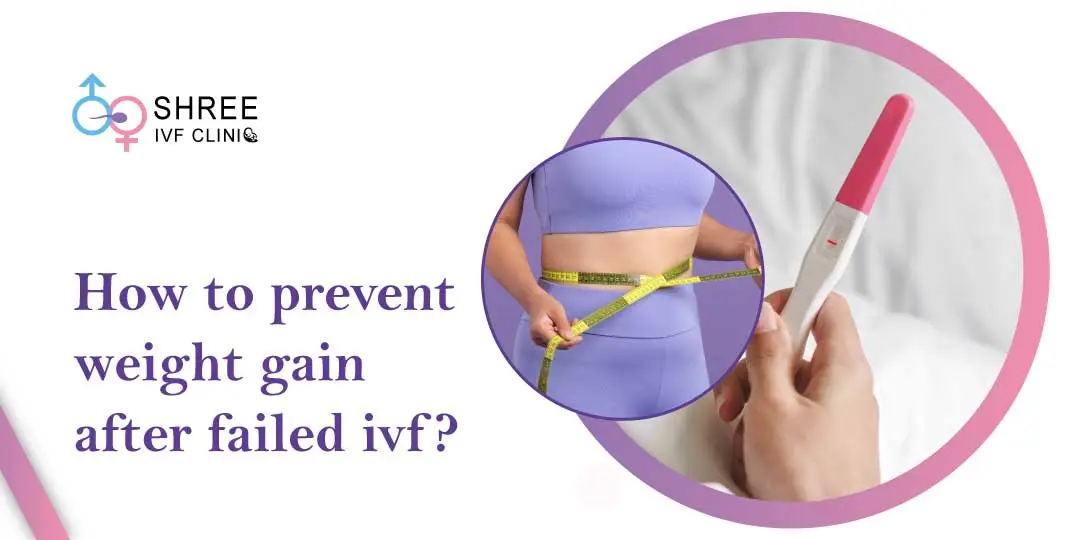
Recovery Timeline: How Long Until You Feel “Normal”?
Everyone’s different, but here’s a rough guide to what your body might go through after a failed IVF cycle—and how long it could take to feel like yourself again.
Week 1-2: The Immediate Aftermath
- What’s Happening: Hormones are still high, ovaries are settling, and you might get your period (if no embryos implanted). Bloating and fatigue are peak here.
- How to Cope: Rest, hydrate, and avoid heavy exercise. Your body’s in repair mode.
Week 3-4: Hormones Start to Level Out
- What’s Happening: Estrogen and progesterone drop, and your ovaries shrink back to normal size. Energy might creep back, but mood swings could linger.
- Science Bit: A 2022 study in Human Reproduction showed that ovarian volume returns to baseline within 28 days for most women.
- Pro Tip: Light walks can boost circulation without overtaxing you.
Month 2 and Beyond: The Reset
- What’s Happening: Your menstrual cycle might restart (if it hasn’t already), and your body finds its rhythm. Stress might still linger, but physically, you’re on the mend.
- Watch Out: If symptoms like severe pain or irregular bleeding stick around, check with your doctor—something else might be up.
Recovery isn’t a straight line—it’s more like a wavy one. Give yourself grace.
The Gut Connection: A New Angle on IVF Recovery
Here’s something you won’t find in most articles: your gut health might take a hit after IVF, and it could affect how you feel. This is a fresh perspective backed by emerging science.
Why Your Gut Matters
The hormones and stress of IVF don’t just affect your reproductive system—they can throw off the balance of bacteria in your gut. This might sound unrelated, but your gut influences everything from mood to energy.
- What’s New: A 2024 pilot study from the Journal of Gut Microbiology found that women post-IVF had lower levels of beneficial gut bacteria like Lactobacillus, possibly due to stress and antibiotics used during the process.
- Symptoms: Bloating, irregular digestion, or even brain fog could signal a gut imbalance.
- Why It’s Overlooked: Most focus is on hormones and ovaries, but your gut’s quietly pulling strings in the background.
How to Support Your Gut
You don’t need a science degree to help your gut recover—here’s what works:
- Eat Fermented Foods: Yogurt, kefir, or sauerkraut add good bacteria.
- Try a Probiotic: Look for one with Lactobacillus and Bifidobacterium strains—studies show they help post-stress recovery.
- Cut Sugar: It feeds bad bacteria, so ease up on sweets for a bit.
Your gut’s like a garden—after IVF, it might need some tending.
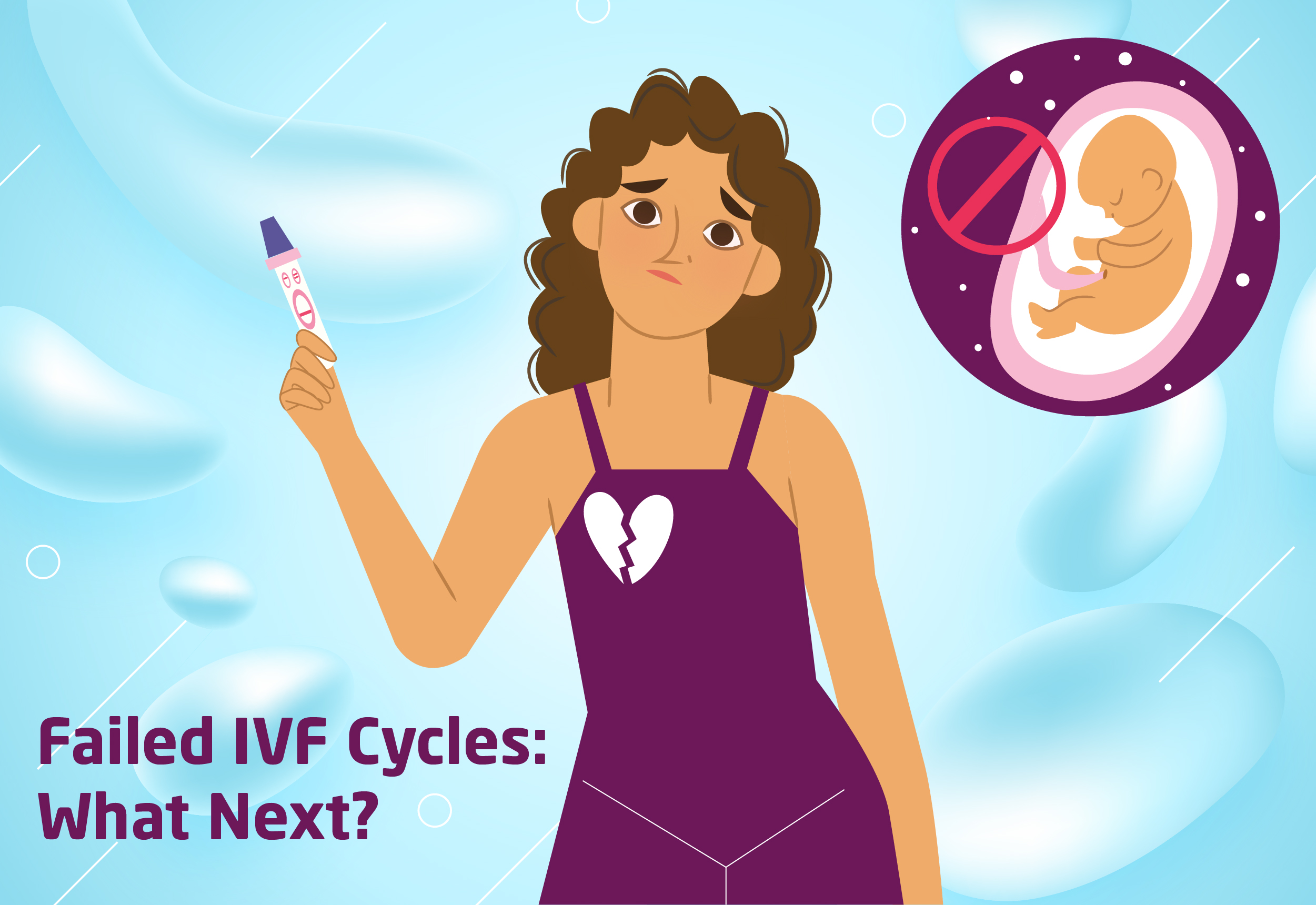
When to Expect Your Period: A Common Question
One big worry after a failed IVF cycle is, “When will my period come back?” It’s a practical question with a not-so-simple answer.
What Affects the Timing
- Hormone Levels: The meds you took (like progesterone) delay your natural cycle. Once they’re out of your system, your period should start.
- Your Body’s Rhythm: If your cycles were irregular before IVF, they might stay that way after.
- Typical Range: Most women see their period 5-14 days after stopping progesterone, but it can take up to a month.
What to Do
- Track It: Mark when you stop meds and watch for spotting—it’s a clue your period’s near.
- Call Your Doc: If it’s been 6 weeks with no sign, get checked. It could be stress or a lingering hormone issue.
Your period’s like a guest who’s late to the party—it’ll show up eventually.
Long-Term Effects: Does IVF Change Your Body Forever?
A failed IVF cycle won’t “ruin” your body, but it can leave echoes. Let’s separate myth from fact.
Myth: IVF Ages Your Ovaries
- Truth: IVF doesn’t use up eggs faster than nature would. You’re born with all your eggs, and each cycle pulls from that pool—IVF just grabs more at once.
- Science Says: A 2023 review in Reproductive Biology and Endocrinology found no evidence that IVF accelerates ovarian aging.
Possible Lingering Effects
- Scar Tissue: Egg retrieval might leave tiny scars, but they rarely cause issues.
- Hormone Sensitivity: Some women report feeling more sensitive to hormonal shifts post-IVF, though research is still catching up.
- Emotional Scars: Stress might stick around, affecting how you perceive your body.
Your body’s resilient—it’s built to handle a lot.
Interactive Quiz: What’s Your Recovery Style?
Take a sec to pick your vibe—it’ll point you to tailored tips:
- A: I’m all about rest and Netflix.
- B: I want to move a little but nothing crazy.
- C: I’m ready to dive into healthy eating.
- A Folks: Prioritize sleep and gentle stretching—your body loves the chill approach.
- B Crew: Try a 10-minute walk daily—it’s low-key but effective.
- C Squad: Focus on gut-friendly foods like yogurt and veggies—your system will thank you.
No wrong answers—just what feels right for you.
Bouncing Back: Practical Steps to Heal
Recovery isn’t passive—it’s active. Here’s how to support your body after a failed IVF cycle, with tips you can start today.
Step 1: Hydrate Like It’s Your Job
Water flushes out excess hormones and reduces bloating. Aim for 8-10 cups a day—add lemon if plain water bores you.
Step 2: Eat to Recover
Your body needs nutrients to rebuild. Focus on:
- ✔️ Protein: Eggs, chicken, or beans repair tissue.
- ✔️ Healthy Fats: Avocado or nuts balance hormones.
- ❌ Skip: Processed junk—it can spike inflammation.
Step 3: Move Gently
Heavy workouts are a no-go, but light movement helps.
- Try: Yoga or a slow walk—15 minutes is enough.
- Avoid: Running or lifting until your doctor gives the green light.
Step 4: Talk It Out
Stress stalls recovery. Chat with a friend, therapist, or support group—letting it out lightens the load.
The Next Cycle: Should You Try Again?
If you’re thinking about another IVF round, your body’s readiness matters. Here’s what to consider.
Timing Is Everything
- Wait Time: Most doctors suggest 1-2 months between cycles to let your ovaries and hormones reset.
- New Data: A 2024 study in The Lancet found that waiting 2 cycles (about 2 months) slightly boosted success rates in women under 35.
Check Your Reserves
- Ovarian Reserve: Ask your doctor for an AMH (anti-Müllerian hormone) test to see how many eggs you’ve got left.
- Gut Check: If your energy’s still low, give it more time—rushing can backfire.
Your body’s not a machine—it needs a breather before round two.
A Deeper Dive: The Role of Inflammation
Here’s another angle most articles skip: inflammation might quietly sabotage your recovery—and your next try.
Why Inflammation Matters
IVF meds and stress can ramp up inflammation in your body, slowing healing and even affecting implantation down the line.
- Evidence: A 2023 study in Nature Reviews Endocrinology linked higher inflammation markers post-IVF to longer recovery times.
- Signs: Joint pain, puffiness, or sluggishness could hint at it.
How to Cool It Down
- Eat Anti-Inflammatory: Turmeric, berries, and leafy greens fight inflammation naturally.
- Sleep More: It’s your body’s best weapon against inflammation—aim for 8 hours.
- Consider Supplements: Omega-3s (like fish oil) might help—check with your doc first.
Think of inflammation like a fire—small steps can douse it.
Real Stories: What Others Experienced
Sometimes, hearing from someone who’s been there helps. Here are two quick takes (names changed for privacy):
- Sara, 32: “After my first failed cycle, I was bloated for weeks. I thought something was wrong, but my doctor said it was just my ovaries calming down. Tea and rest got me through.”
- Jen, 38: “The fatigue hit me hard—I slept 10 hours and still felt off. Turns out, my stress was keeping me wired. Yoga helped more than I expected.”
You’re not alone—your body’s story is unique, but the struggle’s shared.
Final Thoughts: Your Body, Your Pace
A failed IVF cycle leaves its mark—bloating, exhaustion, hormonal ups and downs—but it’s not the end of your story. Your body’s working hard to recover, and with a little care, it’ll find its footing. Whether you’re prepping for another try or stepping back to heal, listen to what it’s telling you. Rest when you need to, eat what nourishes you, and don’t rush the process.
Got a recovery tip that worked for you? Drop it in the comments—I’d love to hear what’s helped you through.


